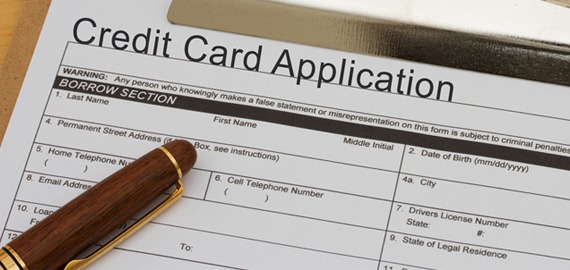
karen roach via Shutterstock.com
Recent trends have shown that Americans, particularly millennials, are wary of using credit cards. The problem largely stems from the way credit cards are viewed today. They are typically perceived as a "last resort" for consumers who can't afford to pay for their purchases. In reality, credit cards are an essential tool - for the right consumer, they can serve to improve financial standing and even earn them money. You should consider applying for a credit card if:
You Have a Bad Credit Score
Responsibly using one's credit card, and paying off balances, is a fantastic way of rebuilding your credit history. Individuals who have defaulted loans declared bankruptcy, or damaged their FICO score in any other way may be distrustful or wary of taking out any more credit. However, these consumers need to try and think of credit cards as a tool rather than a crutch. Making small credit card purchases and paying them off in full each month can serve to mend a tarnished credit history. While you may not get approved for the best cards available, a secured or entry-level credit card may still be available to you.
You Travel Frequently
Some of the best credit card rewards are those affiliated with airlines and hotel chains. When you pay for your travel purchases using these cards, you will earn rewards which can be, in the future, redeemed for more flights or nights. Each of your travel expenses will be offset by some rewards percentage - effectively working as a 2-4% discount. The only caveat is that this will rarely be a pure cash discount. Instead, you will be rewarded in the form of points or frequent flyer miles. However, if you are a frequent traveler, you will undoubtedly be able to make use of such rewards.
You Plan to Take Out a Mortgage
Even though buying a house or apartment may seem like the distant future, it is never too early to start preparing. The same way in which putting money away in your savings account is planting seeds that will help with your future purchase, using a credit card to slowly build up your credit history helps as well. Your credit score will predominantly affect two things when it comes to a big purchase: loan approval and interest rates. The higher your FICO score, the better your odds of being approved for your mortgage. Furthermore, a good credit score correlates with low-interest rates - this will ultimately decrease the total cost of your investment, as you will pay less interest on your purchase.
You Want to Get the Most Out of Each Purchase
If you use the right rewards credit card to make your purchases, while at the same time diligently paying off your balance in full each month, you are getting the most out of each purchase. Banks are vying for your business, and as a result rewards programs on credit cards are getting better and better due to fierce competition among issuers. If you use the right cashback credit card, for example, you can earn 2% off all your spending. Paying by cash or other means simply doesn't provide anything like it.
Bottom Line
Underlying all these points is a central theme of fiscal responsibility. You should never use a credit card if you will end up paying fees or interest. The ads that come in your mail, the banker, or some website talking about credit cards - none of these things know your personal habits as well as you do. If you know you can use credit cards responsibly, they can act to provide you with fantastic value. Making these little pieces of plastic work for you can strengthen your financial portfolio and put a few extra bucks in your pocket!
Underlying all these points is a central theme of fiscal responsibility. You should never use a credit card if you will end up paying fees or interest. The ads that come in your mail, the banker, or some website talking about credit cards - none of these things know your personal habits as well as you do. If you know you can use credit cards responsibly, they can act to provide you with fantastic value. Making these little pieces of plastic work for you can strengthen your financial portfolio and put a few extra bucks in your pocket!
No comments:
Post a Comment